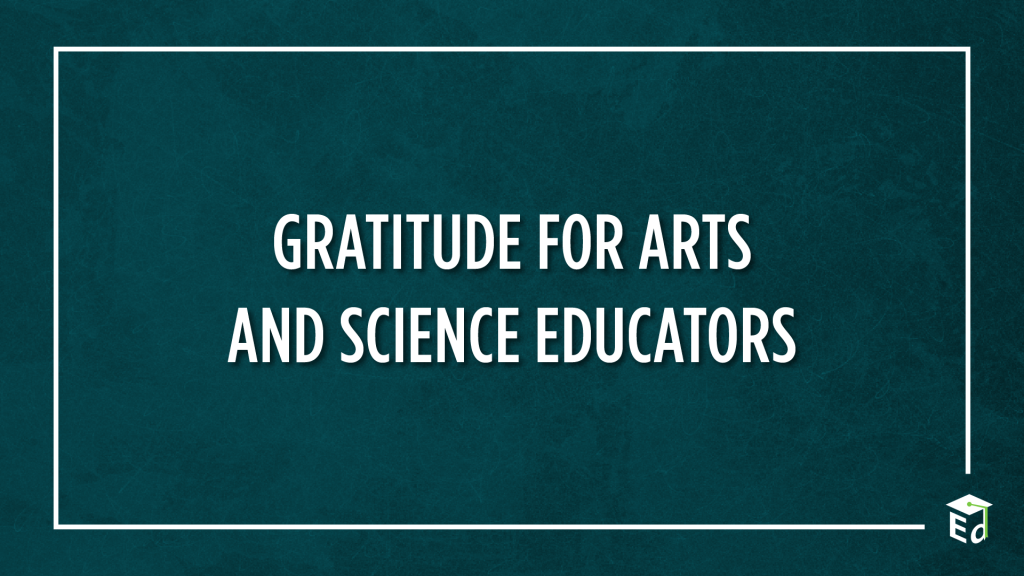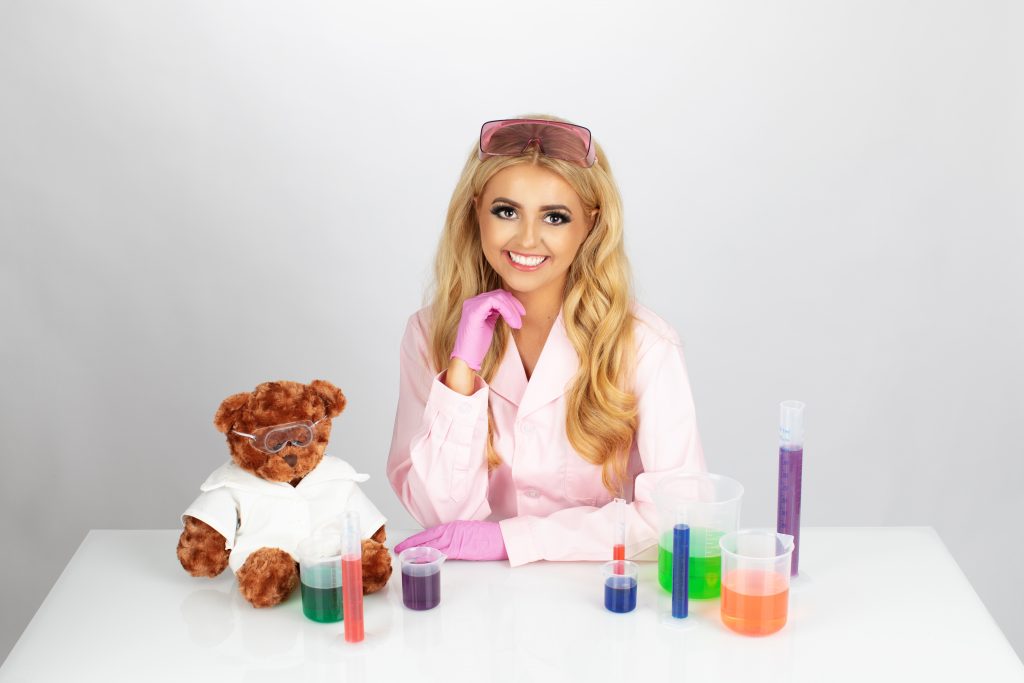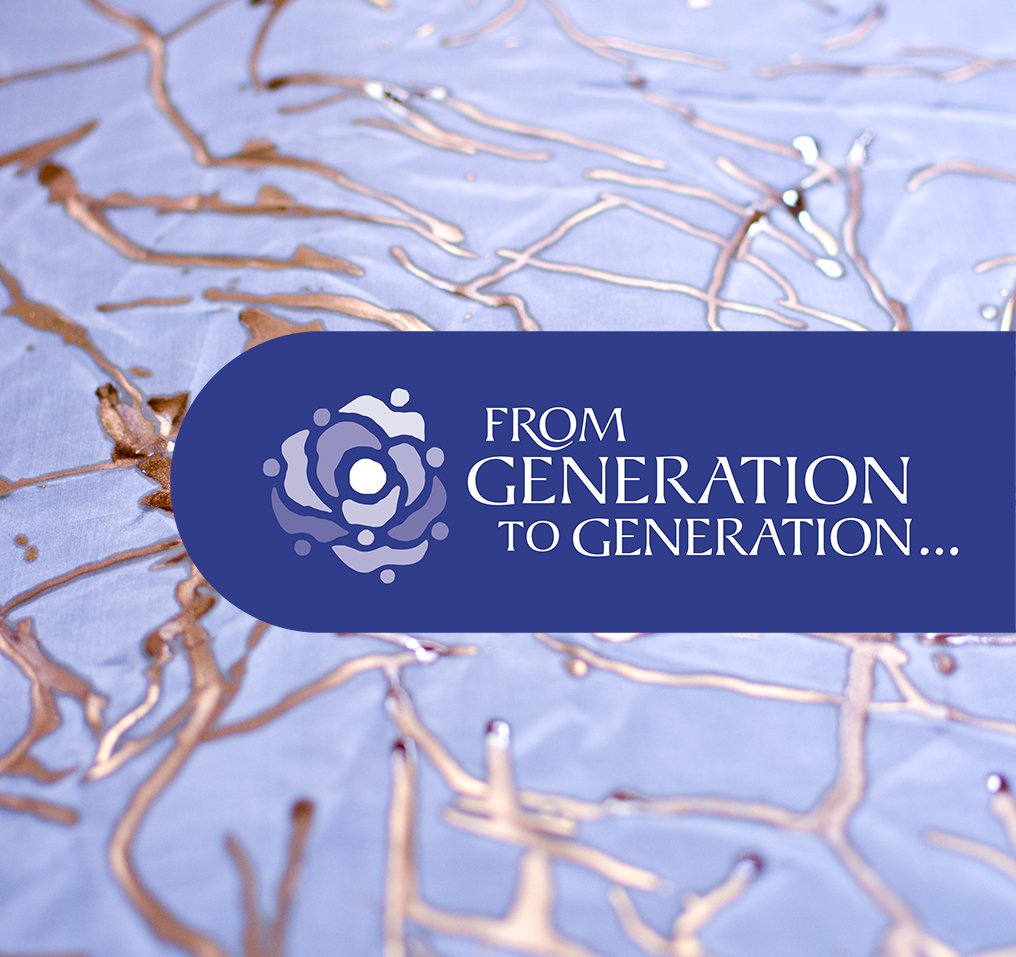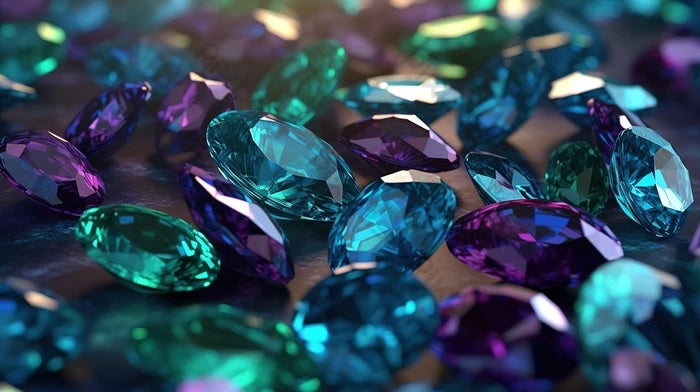Gratitude for Arts and Science Educators


This month, as we’re thinking about gratitude, I’m reflecting on the tremendous impact that educators have had on my life. I would not be where I am today without the many teachers, counselors, librarians, and mentors that have lifted me up, and, now as an educator and mentor myself, I hope to pass that encouragement on to the next generation of students.
From the teachers that pushed me to do my best in class to the guidance counselors that helped me apply to universities, I am grateful that so many people in my life helped me become a first-generation college student, and now a successful artist and scientist. Despite attending a Title 1 school in Memphis, Tennessee with defunded arts programs and a 95% math proficiency fail rate, my educators were dedicated to ensuring my peers and I had every opportunity in STEM and the Arts that they could manage. In my senior year, I received a full scholarship to attend American University in Washington, DC as a Computer Science major.
I quickly realized that I was set up for failure. As a first-generation college student, 900 miles away from my family for the first time, I was already trying to get my bearings, but the real struggles came in my introductory STEM courses. I was an eager and accomplished learner through grade school, and I was in the university’s honors program on a scholarship, so why did it feel like everyone was miles ahead of me every time I stepped foot in a STEM class? Thankfully, I had many professors and advisors that took me under their wings and helped me ‘catch up’ in math and science while also fostering my interests in arts and design as a corollary to my STEM work. Because of their willingness to mentor me, I graduated with a B.S. in Computer Science and left DC for graduate school at Rensselaer Polytechnic Institute in New York, where I earned an M.S. in Lighting in 2021 and am currently a Ph.D. student.
Through all of my experiences, I’ve found that both the arts and sciences are incredibly important components of a well-rounded education. I also understand that these programs are historically underserved, especially for low-income and disadvantaged students. The Arts[HA1] teach students creativity and confidence, and STEM teaches students problem-solving skills and technological literacy. When these two subjects are left out of a child’s education, they miss out on key life skills and opportunities to explore potential passions and careers. I am so thankful for the educators in my life that enriched my educational journey with opportunities in STEM and the A[HA2] rts, and I hope to provide those opportunities back to more children.
As the reigning Miss United States, I am given the opportunity to nationally advocate for a cause of my choice. I have chosen to advocate for the importance of STEM and Arts education through my nonprofit Art Technically. Every child deserves a chance to grow as an artist and scientist regardless of their background. I have grown so much as an artist and scientist thanks to the dedicated educators that helped guide me. As a mentor to students in both STEM and the Arts, I am helping them grow as well-rounded individuals prepared to do great things for the world, just as my teachers did for me. That opportunity is what I am most grateful for.
Lily K. Donaldson is the reigning Miss United States and a Ph.D. student at Rensselaer Polytechnic Institute studying Built Ecologies within the Institute for Energy, the Built Environment, and Smart Systems (EBESS). Originally from Memphis, she’s passionate about advancing educational equity within traditionally underserved communities in the South and beyond, especially related to STEM (Science, Technology, Engineering, and Math) and Arts education. She’s the founder of Art Technically, a nonprofit dedicated to providing STEM and Arts educational opportunities to students at Title 1 and rural K-12 schools.









